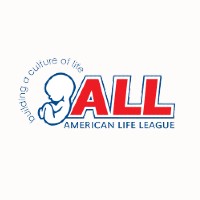Why Do I Need An Advance Healthcare Directive?

Family discord
“I made the decision believing in my heart that it was what mom would have wanted. Two of my siblings accused me of wanting mom dead, so I could claim my share of our inheritance.”This gut-wrenching cry from the daughter of a woman on a ventilator stemmed from a nasty bedside confrontation with her siblings in the hospital ICU. While this is a somewhat extreme example of disagreements between family members over care for their loved one, “end-of-life care and inheritance conflicts often emerge,” says Claire Samuels, an experienced guide for families of dementia patients. “It is controversial. One child may want to arrange hospice care for a terminally-ill parent, while another may advocate that every day lived is a victory.
They know what I want
People commonly assume loved ones know their wishes for end-of-life care. “My spouse and my kids already know what I want,” they say. However, family members when asked frequently said they did not know. Ironically, 90% of those asked in a survey said that talking with loved ones about these wishes is important, but only 27% had actually done so.
Why do we avoid these critical conversations about our end-of-life wishes? Foremost among the reasons are denial (it’s not going to happen to me), assumptions that loved ones or doctors will know what to do, unwillingness to raise the topic driven by superstition, and, in many cases, not having thought about one’s own wishes and values in this context.
Some sobering statistics
Surveys on attitudes towards death and dying highlight some sobering consequences. 60% of respondents said it was extremely important that their family not be burdened by tough decisions about their care. However, 56% had not communicated their end-of-life wishes to their family. The top three concerns from the survey were: making sure they were not a financial burden to family (67%), being comfortable and without pain (66%), and wanting to die at home (70%). Research suggests a different reality: 70% of Americans die in institutions, 50% die in pain and 30% of families lose most of their life savings while caring for a dying loved one.
Current law and medical profession norms
Under current US law and the norms and ethical guidelines of the medical profession, physicians will pursue all means necessary to prolong your life, unless they have specific guidance to do otherwise. A physician may consult with the family to determine your wishes. However, this is usually a challenging and emotional time, and family members can often disagree over what they think you would want and what decisions to take.
The Advance Health Care Directive
This is where the Advance Health Care Directive (AD) comes in. This document has several benefits; however, it serves two principal functions. First, it appoints an individual to act as your Healthcare Agent (also known as the surrogate decision maker or healthcare power of attorney). This person is authorized by you to make decisions about your medical treatment when you cannot speak for yourself. Second, it guides both your health care agent and medical professionals to make those treatment decisions in accordance with the wishes you describe on the form: under what conditions you would like further medical treatment to continue, and when it should be stopped. The AD may also be used to record additional wishes – details for your memorial service or organ donation, for instance. It’s a gift of love and peace of mind – to yourself and your family. It removes the burden and guilt of making tough choices from your family’s shoulders, since the agent is implementing your specific, written instructions.
What makes life worth living for you?
Before you fill out an Advance Directive, it is essential to understand your own values and wishes. Under what circumstances do you want to remain alive? What if you are dependent on someone for all your daily needs? How important is the ability to communicate with those around you? There is no right or wrong answer; these are intimate and individual decisions that each of us needs to make for ourselves. Once we have clarified these values in our own minds, we can address all medical treatments as options to enable or maintain a desired quality of life: “I want this treatment if it will enable my wishes,” or, “do not take measures to extend my life, if they have no power to cure my illness and may restrict the quality of my life.”
Advance Care Planning
Advance Care Planning is the process of understanding your values, having conversations with your loved ones and your health care agent, and then completing an AD form. Most states and health-care providers offer forms. The California Advance Health Care Directive and the Stanford Health Care Advance Directive are good examples. Look at a few, and pick the form you like. Remember, advance care planning is a process, not a one-time event. Circumstances change and what’s important to us changes with time. You should revisit your AD every five years, and after significant life events such as a death or divorce, and revise it if needed.
Have you completed or reviewed your AD?
April 16th is designated National Healthcare Decisions Day in the US, to educate healthcare providers and consumers about advance care planning, and empower all to make wishes for their care known. Every adult should have an advance directive. It is also essential to share the AD form with your health care agent, family, and doctor. Give your family and yourself this gift of love. Do not put this off. Act now!
*A note about Advance Health Directives in India. The Indian Supreme Court granted legal status to the concept of ‘advance medical directives’ in 2018. This was seen as a vital recognition of both patient autonomy over end-of-life decisions and the right to a dignified death. In 2023, a Constitution Bench modified these directions to make them simpler and more workable. A notary may now attest that the document was executed voluntarily, without coercion or inducement, and with full understanding. More than one guardian or relative may now be named as authorized agents to give consent to refuse or withdraw medical treatment. The person executing the advance medical directive now has the responsibility to provide copies of the advance directive to the authorized agents named in it, as well as to the family physician. The new guidelines require the hospital to constitute a medical board to certify whether the instructions on refusal or withdrawal of treatment should be carried out. One example of the AMC form can be downloaded from Pallium India. The AMC may also now be included in India’s digital health records system, known as the Ayushman Bharat Digital Health Mission.
Related
link






